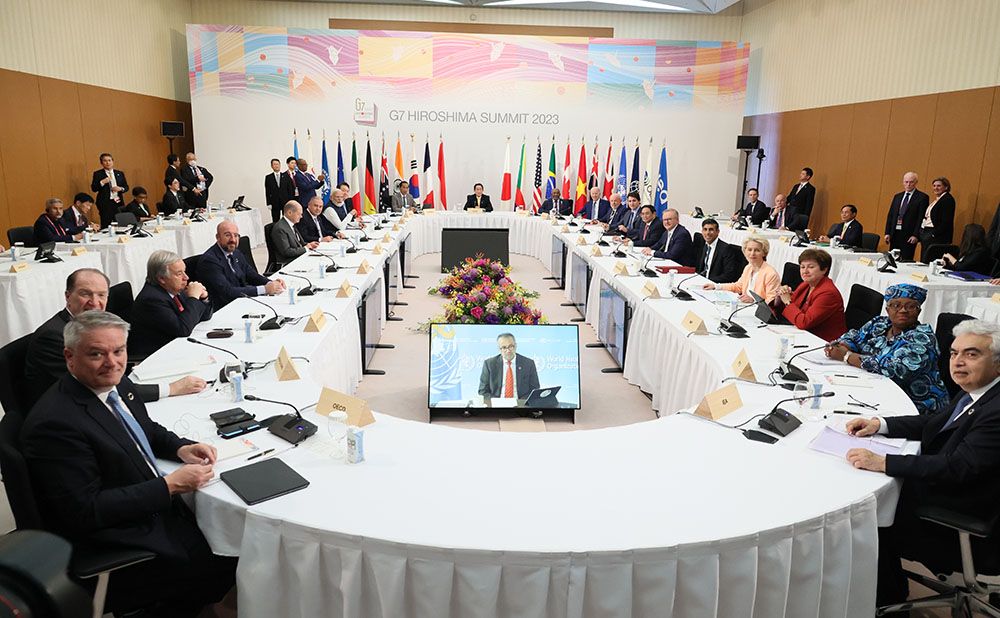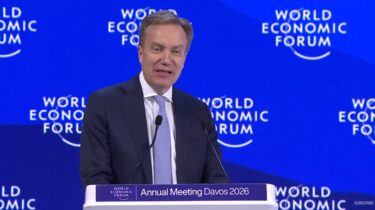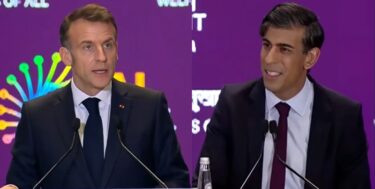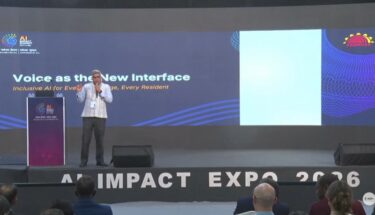The organizations that make up the initiative are all deeply in bed with one another: perspective
The Trilateral Commission’s Asia Pacific Secretariat joins forces with some of the biggest organizations influencing global health policies to launch the G7 Hiroshima Global Health Follow-up Initiative.
In partnership with the Bill and Melinda Gates Foundation, the Coalition for Epidemic Preparedness Innovations (CEPI), the International Pandemic Preparedness Secretariat (IPPS), and Wellcome Trust, the Japan Center for International Exchange’s (JCIE) G7 Hiroshima Global Health Follow-up Initiative aims “to review the progress of the G7’s past commitments related to pandemic prevention, preparedness, and response (PPR)/resilient health systems, and identify the remaining challenges that need to be addressed in the G7 2024.”
Prior to this year’s G7 meeting in Hiroshima, Japan, the JCIE’s Hiroshima G7 Global Health Task Force published 49 pages of recommendations for the meeting that took place in May.
Some of the task force’s recommendations to the G7 were to the benefit of its own members (i.e. CEPI, Gates Foundation, Global Fund, etc.) and were later adopted by the G7 leaders.
For example, the JCIE recommended:
- The G7 should call on support for CEPI’s […] R&D programs to accelerate vaccine and treatment development.
- The G7 should recognize global partnerships and foundations such as Unitaid, the Global Fund, WHO, GAVI, FIND, Bill & Melinda Gates Foundation, and Clinton Health Access Initiative.
- These all played a catalytic role in expediting the market introduction, manufacturing, and procurement of countermeasures for COVID-19 and underlined the importance of their partnership and cooperation.
- The G7 should also encourage international organizations such as the Global Fund, GAVI, GFF, and others to act as catalysts for domestic resource mobilization through co-financing requirements, advocacy, and technical assistance.
Published on May 20, 2023, the G7 Hiroshima Leaders’ Communique highlighted how influential the JCIE recommendations were with regards to solidifying partnerships with the organizations affiliated with the JCIE.
In the communique, the G7 leaders announced the launch of the Medical Countermeasures (MCM) Delivery Partnership for equitable access (MCDP), stating:
“We will continue to contribute to ongoing processes, including in the G20, on an end-to-end MCM ecosystem […] in cooperation with relevant partners including the WHO, the WB, UN Children’s Fund (UNICEF), the Global Fund, GAVI the Vaccine Alliance, Global Health Innovative Technology (GHIT) Fund, Coalition for Epidemic Preparedness Innovations (CEPI), the Foundation for Innovative New Diagnostics (FIND) and Unitaid and Medicines Patent Pool, regional organizations and the private sector.”
On the health tracking, data sharing, and surveillance side, the JCIE had previously recommended:
- The G7 should work to create a digitally symbiotic society that ensures no one is left behind:
- This includes promoting investment in real-time syndromic surveillance and tracking systems, as well as human resource development through the use of Internet of Things (IoT) devices and social media.
- The G7 can reaffirm its support for the efforts of international organizations […] to promote the use of digital tools in low-and-middle-income countries (LMICs):
- These tools can be used to empower health workers to collect disease-related information, such as vaccination history, adverse reaction occurrences, and post-vaccination infection status, while also delivering prevention and outreach services to vulnerable populations in LMICs.
- The G7 should promote international discussions on rules-based criteria for cross-border healthcare data use, especially regarding handling personal health information for public interest purposes during pandemics:
- Establishing a web-based, standardized, interoperable national digital platform—one that is gender-sensitive as well—for healthcare information and creating a robust legal framework for the cross-border use of personal health records should be prioritized.
The G7 Hiroshima Leaders’ Communique would later recognize “the importance of timely, transparent and systematic sharing of pathogens, data and information in a safe and secure manner, ensuring the respect of relevant data protection rules, for multisectoral and integrated surveillance of emerging and ongoing health threats both in ordinary times and in emergencies.”
“The Japan Center for International Exchange (JCIE) is launching a G7 Hiroshima Global Health Follow-up Initiative in partnership with the Bill & Melinda Gates Foundation (BMGF), the Coalition for Epidemic Preparedness Innovations (CEPI), the International Pandemic Preparedness Secretariat (IPPS), and Wellcome Trust to review the progress of the G7’s past commitments related to pandemic prevention, preparedness, and response (PPR)/resilient health systems, and identify the remaining challenges that need to be addressed in the G7 2024”
The organizations that make up the JCIE’s Hiroshima G7 Global Health Follow-up Initiative are all deeply in bed with one another.
For example, the JCIE managed the Hiroshima G7 Global Health Task Force “under a grant from the Bill and Melinda Gates Foundation.”
The IPPS steering group members were all “selected from the Secretariat’s supporting organizations (the Bill & Melinda Gates Foundation, the Wellcome Trust), three G7 Presidencies (current, incoming, and prior year’s presidency), current G20 presidency, the International Federation of Pharmaceutical Manufacturers and Associations (IFPMA) and the two co-chairs of the Science and Technology Expert Group.”
CEPI was founded at the 2017 World Economic Forum (WEF) annual meeting in Davos, with support from the Gates Foundation.
In January 2022, the Gates Foundation and the Wellcome Trust both pledged $150 million apiece to CEPI for vaccine research and development.
The WEF is partnered with the Gates Foundation and the Gates Foundation is partnered with the JCIE.
Historically, the Bill and Melinda Gates Foundation, along with the Gates-backed GAVI vaccine alliance (which also works with Wellcome Trust), have contributed more to the World Health Organization (WHO) program budget than all member nations, save two — the US and the UK.
CEPI, GAVI, and the WHO co-led COVAX, with key delivery partner UNICEF, to accelerate the development and manufacture of COVID-19 vaccines.
Founded in 1970, the JCIE is the Asia Pacific Secretariat for the Trilateral Commission, the latter of which was founded in 1973 by David Rockefeller, who was also a decades-long member of the Council on Foreign Relations (CFR), alongside Henry Kissinger.
Kissinger discovered the future founder of the WEF, Klaus Schwab, at a CIA-backed seminar at Harvard University that Kissinger directed in 1967 and where he began mentoring Schwab.
Last month, the WHO launched the “global health digital certification network,” which “builds upon the experience of regional networks for COVID-19 Certificates and takes up the infrastructure and experiences with the digital European Union Digital COVID Certificate (EU DCC) system.”
However, the WHO explicitly stated in August 2021 that COVID vaccine passports “may increase the risk of disease spread” due to the fact that “the extent to which each vaccine prevents transmission of SARS-CoV-2 to susceptible individuals remains to be assessed.”
The idea of a global vaccine passport system run by the WHO was proposed at the 2022 B20 Summit in Bali, Indonesia.
“Let’s have a digital health certificate acknowledged by WHO — if you have been vaccinated or tested properly — then you can move around” Budi Gunadi Sadikin, Indonesian Health Minister, B20 Summit 2022
There, Indonesia’s Minister of Health and former banker Budi Sadikin stated that the G20 should adopt WHO-standardized vaccine passports at the next World Health Assembly.












